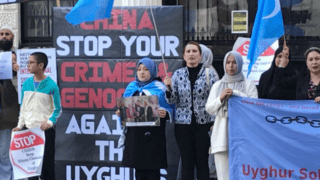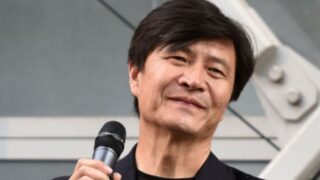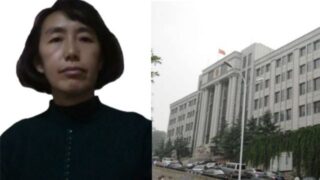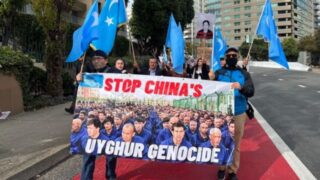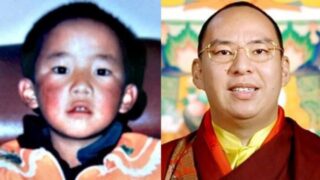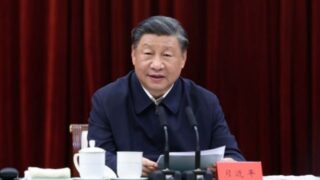Xi’s anti-corruption campaigns actually increased corruption. New scholarly studies explain why.
by Massimo Introvigne


President Xi Jinping’s great campaign is the struggle against corruption in China. It is true that, under the pretext of fighting “corruption,” he got rid of enemies and critics. But in general, most foreign media are persuaded that he achieved some results.
Data, however, refuse to cooperate. Transparency International publishes the widely used Corruption Perception Index (CPI). In 2012, when Xi launched his anti-corruption campaign, China ranked 80th out of 174 countries for its effectiveness in fighting corruption. In 2019, it had dropped to the 84th place. The World Bank’s Worldwide Governance Indicator’s Corruption Control Index also signals no improvement in China’s level of corruption since 2012.
The data may seem counter-intuitive to those who visit China with some regularity or discuss corruption with Chinese colleagues and friends. The average Chinese would tell you that Xi’s anti-corruption campaign did achieve some results. There is a widespread impression that local police officers, at least in some provinces, are becoming slightly less venal in asking for bribes. And the most despised form of corruption in China is by medical doctors and public health bureaucrats, who ask for money to shorten the long waiting time for medical examinations and treatments. Some of them have been arrested, and there is a general feeling that the situation in the health sector has improved.
What happened, however, is that while some forms of petty corruption have decreased, large-scale corruption has increased. This, scholars of corruption in China say, is not surprising, and could have been predicted when Xi started his campaign. In 2020, Cambridge University Press published the study by Ang Yuen Yen, China’s Gilded Age: The Paradox of Economic Boom and Vast Corruption. In April 2021, Ang’s book and other relevant literature was reviewed in an important article by Børge Bakken and Jasmine Wang, both teaching at the Australian National University in Canberra, published in the journal Crime, Law and Social Change.
Ang distinguishes between four aspects of corruption: petty theft, grand theft, speed money, and access money. While petty theft (stealing small sums of government’s money or taking comparatively small but regular bribes), grand theft (misappropriating large sums of public money), and speed money (taking money to speed up a bureaucratic process or allowing those who pay to jump a queue) are more visible by the average citizen, ultimately the figures about corruption depend on access money, i.e., the illegal movement of enormous sums of money due to political corruption. Ang states that the relation between speed money and access money can be compared to the one between painkillers and steroids.
Access money is the grand corruption involved in the land and state-owned-enterprises (SOE) privatizations. In theory, land continues to belong to the state but in practice, being allowed to use it for several decades produces much of the same effects of the ownership. Allocating land to real-estate companies, mines to private entrepreneurs, and SOE to private investors generated in China (and in post-Soviet Russia, although with differences) enormous transfers of money. These are often devious, illegal, and designed to enrich certain entrepreneurs, and are decided by CCP high-ranking officers that, the studies tell us, have remained untouched by Xi’s anti-corruption campaigns.
But why these campaigns actually made the situation worse? After all, privatizations had started well before Xi Jinping. The two scholarly studies I am discussing here (and several others) give the answer. To fight petty corruption—and much more to consolidate his own immense personal power—Xi Jinping has created an elite of almost omnipotent high-level cadres, most of them children and grandchildren of previous CCP leaders (for example, Bakken and Wang believe that billionaire Jack Ma is being punished not only for some unwise remarks subtly critical of the President, but because he is a self-made capitalist without the “red” family pedigree of other oligarchs).


The power of a small group of local leaders, who answer directly to Xi Jinping, has also grown exponentially. All this makes a comparatively small number of CCP high-placed leaders omnipotent (at least, until they incur the displeasure of Xi Jinping), and they are those who move the access money, at the same time claiming that they “fight corruption” by jailing and even executing some police officers or doctors who took bribes. Meanwhile, access money also creates huge social inequalities, a system that “robs the poor to feed the rich.”
Bakken and Wang add that organized crime is also part of the system, and it is “well-known” that it controls “senior police officers” and judges. “Criminals even know the exact sum of a bribe to have a sentence reduced or completely cancelled.” Worse, according to the two scholars “in some areas of China, mafia organizations have entirely taken over the political leadership.” They also control those who publish statistics about crime, which are systematically falsified.
“The anti-corruption campaign introduced by Xi Jinping is merely a corruption face-lift,” Bakker and Wang write. And to hide all this, the security apparatus needs to grow, to silence any independent voice or opposition.


